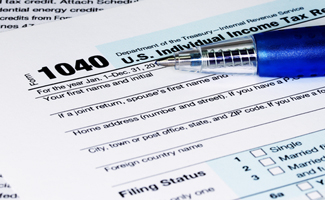Supreme Court rules Trump isn't automatically immune from criminal subpoenas

Image from Shutterstock.com.
The U.S. Supreme Court ruled Thursday that President Donald Trump is not automatically and absolutely immune from state criminal subpoenas in a case seeking his financial records.
The court ruled against Trump in a case in which Manhattan District Attorney Cyrus Vance is seeking financial information from Trump’s accounting firm, Mazars USA.
Vance is said to be investigating hush money payments before the 2016 presidential election. The case is Trump v. Vance.
The New York Times called the Vance decision “a stunning defeat” for Trump. The newspaper pointed out, however, that the records would likely remain secret under grand jury rules, at least until after the 2020 presidential election “and perhaps indefinitely.”
The Supreme Court favored Trump on Thursday in two other combined cases in which congressional committees sought Trump’s financial records. The Supreme Court ruled that lower courts should have taken account of separation of powers concerns.
Those cases are Trump v. Mazars USA and Trump v. Deutsche Bank.
Chief Justice John G. Roberts Jr. wrote the majority opinions in the Vance case and the combined congressional cases. The vote was 7-2 in both cases. The cases return to lower courts for additional proceedings.
Roberts’ opinion in the Vance case was joined in full by Justices Ruth Bader Ginsburg, Stephen G. Breyer, Sonia Sotomayor and Elena Kagan. Justice Brett M. Kavanaugh concurred in the judgment, joined by Justice Neil M. Gorsuch.
“The president is neither absolutely immune from state criminal subpoenas seeking his private papers nor entitled to a heightened standard of need,” Roberts wrote.
Kavanaugh said in his Vance concurrence that the case goes back to the trial court, where Trump “may raise constitutional and legal objections to the subpoena as appropriate.”
Kavanaugh said he agreed that the case should be remanded for those additional proceedings.
The congressional subpoenas case also returns to the trial court where it must consider separation of powers concerns.
Roberts’ opinion in the congressional cases was joined by Ginsburg, Breyer, Sotomayor, Kagan, Gorsuch and Kavanaugh.
Roberts said courts in the congressional cases should take four considerations into account:
• Whether the legislative purpose in seeking the records “warrants the significant step of involving the president and his papers.”
• The subpoena must be no broader than reasonably necessary to support Congress’ legislative objective.
• Courts should consider Congress’ evidence supporting its claim that the subpoena advances a valid legislative purpose. “The more detailed and substantial the evidence of Congress’ legislative purpose, the better.”
• Courts should consider the burdens imposed on the president by the subpoena.
Hat tip to the Washington Post and SCOTUSblog, which had early coverage of the decisions.
See also:
ABAJournal.com: “Chemerinsky: It’s likely to be an amazing year in the Supreme Court”
ABAJournal.com: “Supreme Court agrees to hear 3 disputes over access to Trump’s financial and tax records”
ABA Journal.com: “2nd Circuit refuses to block House committees’ subpoenas for Trump bank records”
ABAJournal.com: “DC Circuit upholds Democratic subpoena for Trump’s financial records”
ABAJournal.com: “Afternoon Briefs: Trump must provide tax returns, court says; DA accepts gift cards in exchange for community service”
ABAJournal.com: “Trump lawyer argues Congress can’t seek president’s financial records for law enforcement purpose”
ABAJournal.com: “Chemerinsky: It’s going to be an unusual May in the Supreme Court”



